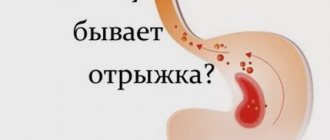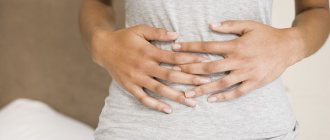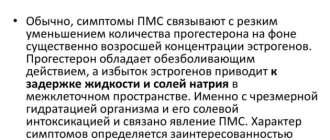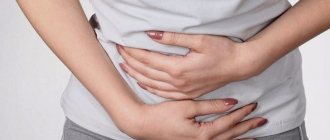Diarrhea, diarrhea and flatulence, gas formation in the intestines and frequent loose stools
A disease for which the characteristic symptoms are the appearance of loose or foamy stools is commonly called diarrhea in medical practice.
This syndrome is often accompanied by pain in the intestinal tract, indigestion, or high fever. Possible causes of acute or chronic diarrhea are intestinal infections and food poisoning. Unformed stool in an adult for a long time is a very dangerous syndrome that can lead to dehydration and serious health problems. Violation of the water-salt balance in the body threatens the development of irreversible pathological changes, therefore, if signs of digestive upset are detected, you should immediately seek help from a doctor.
A healthy person's stool consists of approximately 75% liquid. The rest is a mixture of enzymes, fiber, exfoliated intestinal epithelial cells, mucus, food debris and bacteria. Diarrhea with liquid in most cases is a consequence of mechanical damage to the mucous membranes of the large intestine or its bacteriological contamination.
Both precursors of diarrhea here are caused by eating food that does not satisfy the physiological parameters of the human gastrointestinal tract. Diarrhea also begins as an allergic reaction after taking certain medications or foods, as well as the ingestion of certain chemicals. Diarrhea often accompanies people who are subject to prolonged nervous tension or suffer from mental disorders.
The state of increased gas formation in the intestines, or flatulence, does not always indicate the development of any disease. The formation of gases is the result of food processing by bacteria living in the large intestine and does not require treatment. Gases (the main symptoms of flatulence) are a kind of by-product of the digestive process that must be eliminated from the body, like other waste products.
If the intestinal walls do not fully absorb nutrients and liquids, metabolic processes are disrupted, and food debris interacts with saprophytic bacteria. This causes loose stools, sometimes watery stools, accompanied by increased flatulence. As with any other disease, treatment of diarrhea with water and gases should be aimed, first of all, at eliminating the source of unpleasant symptoms. It often happens that the manifestations of the disease disappear immediately after their cause is eliminated.
If, with diarrhea containing a significant portion of fluid, the patient has severe or persistent abdominal pain, he must be urgently taken to the hospital or an ambulance team must be called to his home. It is recommended to provide the patient with plenty of fluids (clean water) to prevent dehydration.
Celiac disease
It should be noted that the disease is exclusively hereditary. It’s just impossible to get sick with it. Celiac enteropathy (celiac disease) is the destruction of intestinal villi under the influence of proteins.
In this case, atrophy of the small intestine occurs. It loses its ability to absorb fats and carbohydrates. Common signs:
- Diarrhea or constipation may occur. They often alternate.
- Stomach ache. The intensity is cramp-like. It begins after eating food.
- Undigested food remains are observed in the stool.
- Possibly internal bleeding.
- Blood is released along with the feces.
- Flatulence and rumbling in the intestines.
- As a result, anemia develops.
- Nausea.
- The body quickly loses fluid.
- Nails are characterized by increased fragility.
- Discomfort and aches in muscles and bones.
- Hair flakes.
Diagnostics
If a problem occurs in an adult, you should immediately consult a doctor. First of all, the specialist will prescribe a stool test, which will help identify pathogenic bacteria and helminthic infestations.
A decrease in the number of red blood cells when performing a biochemical blood test indicates the appearance of inflammation. This technique is used to diagnose ulcerative colitis. With the help of scatology, it is possible to determine the composition of the intestinal microflora. This is very important for assessing the condition in children and pregnant women.
If symptoms of diarrhea occur, it is recommended to consult a proctologist or gastroenterologist. The specialist conducts a comprehensive examination of the patient’s digestive tract, having previously carried out an external examination. With the power of instrumental endoscopic techniques, the doctor can detect damage to the mucosa or other parts of the gastrointestinal tract. If necessary, the following procedures are carried out:
- coprogram;
- bacteriological culture;
- examination of stool for worm eggs;
- Ultrasound.
Lactose intolerance
It is usually divided into 2 types: congenital and acquired. In the first case, abdominal flatulence and diarrhea accompanies a person throughout his life, and from the very first days. In the second case, such manifestations cause diseases.
Symptoms occur after consuming dairy products and depend on the degree of lactose production.
The first sign is nausea, which comes after about half an hour of eating dairy products. Next, an adult begins to rumbling, vomiting, pain, and possibly even seizures.
At a young age, symptoms are complemented by lack of appetite, irritability and moodiness.
Main reasons
Irritable bowel syndrome is an abnormality in the functioning of an organ that has been present for a long time and is not accompanied by organic or infectious pathologies. In this case, there is rumbling in the intestines, diarrhea, nausea and vomiting. Flatulence and pain also often occur.
Lactose intolerance is congenital and is accompanied by bloating and diarrhea after consuming dairy products. After bowel movement, the symptoms disappear.
Dysbacteriosis - may be a consequence of the predominance of pathogenic bacteria in the digestive organs. Often the cause is the microbe Helicobacter. These processes are characterized by an increase in the synthesis of intestinal gases and disruption of food processing in the intestines.
Celiac disease is a genetic abnormality characterized by damage to the intestinal mucosa. It is characterized by intolerance to gluten and structurally similar cereal proteins. In this case, severe distress, flatulence, belching and severe pain are observed.
Intestinal obstruction is caused by mechanical obstructions in the intestines. In this situation, constipation diarrhea often occurs. They represent the removal of a small amount of dense feces or blood clots, which are mixed with purulent masses and mucus.
Food poisoning and infectious diseases - this condition can be caused by E. coli. When harmful bacteria multiply, there is a risk of diarrhea and gas. There is also a high probability of increased body temperature. Severe pain and nausea often occur, leading to vomiting.
The appearance of diarrhea and bloating is possible with pancreatitis and cancer. In the first case, there is an insufficient amount of enzymes, which is typical for pancreatic disease. This causes insufficient breakdown of food in the intestines. As a result, it is excreted from the body with liquid feces.
A malignant lesion of the large intestine or a tumor formation in the abdominal cavity disrupts the normal movement of feces and leads to compression of the intestine. This leads to obstruction, gas, flatulence. Blood clots often appear during bowel movements.
Other causes of bloating and diarrhea include chronic gastroduodenitis and gastric candidiasis. In the first case, severe inflammation of the gastric mucosa is observed. This leads to a disruption in the process of digesting food.
If diarrhea and bloating occur too frequently, you should consult your doctor. If necessary, it is worth undergoing additional examination. Thanks to this, it will be possible to timely detect the onset of gastrointestinal tract disease and avoid the development of a chronic process.
Bloating and diarrhea are unpleasant symptoms of many gastrointestinal diseases. Very often, stool upset and increased gas formation are accompanied by abdominal pain, heartburn, belching, rumbling, and a high body temperature may rise. In some cases, nausea and vomiting occur.
All diseases in which the patient is bothered by symptoms such as flatulence and diarrhea occur due to increased sensitivity of the intestinal mucosa. Most often, these signs develop against the background of the following pathological conditions:
- Irritable bowel syndrome is a pathological disorder of the functional activity of the intestine, lasting for a long time (more than 3 months), without identifying any organic or infectious causes that caused disturbances in the functioning of the organ. The main signs of the disease: frequent indigestion, diarrhea and bloating, accompanied by nausea, vomiting, and pain.
- Dysbacteriosis – when pathogenic microorganisms predominate in the intestines, increased production of intestinal gases occurs, the process of breakdown of food masses in the intestinal ducts is disrupted, which is the main cause of diarrhea and bloating.
- Lactose intolerance is a congenital disease in which diarrhea and bloating always occur when consuming dairy products. These symptoms usually disappear after defecation.
- Celiac disease is a hereditary disease in which there is destruction of the intestinal mucosa. Characterized by intolerance to gluten and related cereal proteins. With this disease, the patient experiences not only bloating, belching and diarrhea, but also severe pain in the upper abdomen (between the navel and sternum).
- Intestinal obstruction - the evacuation of feces and gases is difficult due to some mechanical obstruction in the intestinal ducts. Very often, painful bloating is accompanied by constipative diarrhea (frequent evacuation of small amounts of hard stool or blood clots mixed with mucus or pus).
- Food poisoning and intestinal infections - indigestion and intestinal dysfunction due to the consumption of spoiled or contaminated products with E. coli. In this case, with increased proliferation of pathogenic microorganisms, bloating and diarrhea occur. In case of food poisoning or intestinal infection, stool upset and increased gas production are almost always accompanied by increased body temperature, vomiting, nausea, dizziness, and severe painful spasms in the stomach and intestines.
The causes of flatulence and diarrhea can be various diseases of the gastrointestinal tract:
- pancreatitis - an insufficient amount of enzymes produced by the pancreas leads to the fact that food masses do not have time to be completely broken down in the intestinal tract and are excreted with loose stools;
- chronic gastroduodenitis is a disease characterized by severe inflammation of the gastric mucosa, which results in improper and insufficient digestion of food masses, which leads to bloating and diarrhea;
- Gastric candidiasis is a fungal disease that affects the gastric mucosa. An irritated mucous membrane cannot normally break down particles of food entering the stomach. Semi-digested food masses entering the intestines from the stomach cause severe irritation and accelerated evacuation of unformed feces.
If diarrhea and bloating begin to appear systematically and such symptoms have not been observed before, you should definitely consult a doctor and, if necessary, undergo an appropriate examination. This will help identify the disease at an early stage of development and successfully stop it, preventing it from becoming chronic.
The most well-known disorders of the intestinal tract are diarrhea and bloating, the causes of these ailments are most likely associated with bacteria, viruses or parasites that have attacked the body.
Irritable bowel syndrome
This disease is caused by malfunctions of the nervous and central nervous systems, as well as the gastrointestinal tract. You can get it by:
- Poor nutrition.
- Pregnancy.
- Childbirth.
- Heredity should also not be excluded.
- Constant stress and tension.
- Fatigue.
These and other reasons are quite capable of causing such an illness. There are 3 types:
- Constant constipation, the appearance of which is provoked by solid foods. In case of constipation, the process of defecation can occur no more than 3 times a week.
- Frequent diarrhea. It happens when the volume of feces is too excessive and pulls on the intestinal walls. Thus, peristalsis increases and causes diarrhea. A person can go to the toilet about 5 times per day.
- Gas formation.
The intensity also varies. However, some patients report sleep disturbances and a feeling of anxiety.
Expired food products provoke acute food poisoning. A pain syndrome appears in the stomach, which develops into flatulence and diarrhea: pathogenic microorganisms (pinworms, roundworms, staphylococcal bacillus, etc.) actively multiply in the intestines.
Toxicosis of the digestive system is caused by poisonous mushrooms and plants. Contract with pets is also fraught with intestinal helminthiasis. Food poisoning can be recognized by the following signs:
- dizziness;
- stomach cramps;
- vomiting, nausea, high body temperature.
If there is minimal suspicion of poisoning from expired products, immediate gastric lavage is recommended. By provoking a gag reflex, you can partially remove toxic substances from the body. To eliminate the risk of complications, you need to see a doctor who will make the correct diagnosis and prescribe the optimal treatment.
Flatulence and diarrhea (diarrhea with gas)
Increased gas formation in the gastrointestinal tract - flatulence, often appears simultaneously with diarrhea. The norm for the intestines is the presence of about 200 ml of gases, which come from the outside, when swallowing air, from the blood, and are also formed in the lumen of the rectum. If they accumulate in large quantities in the intestines, they come out in the form of foam with small bubbles surrounded by viscous mucus, which impairs the functioning of the gastrointestinal tract and interferes with the absorption of enzymes.
- Gases and loose stools form in a child during the formation of the gastrointestinal tract, in the first months of life. The appearance of diarrhea in this case is quite natural;
- It provokes flatulence and diarrhea, and the absence of the necessary enzymes in the baby’s body until a certain time. In this regard, it is not possible to completely digest food; accordingly, part of it ends up in the lower part of the esophagus, where it undergoes rotting. All this is accompanied by increased gas formation and diarrhea. And the frequent crying of a baby during an illness is a reaction to the painful sensations that these processes cause;
- In addition, loose stools with gases can be caused in an infant by poisoning;
- The appearance of such signs in a baby can also occur due to non-compliance with the correct diet, as this leads to disruption of the enzyme system. Flatulence, diarrhea and a bloated stomach are obvious consequences of this;
- Gas formation and diarrhea can occur if the intestinal microflora, in particular the colon, is disturbed. These symptoms are frequent accompaniments of such dysbiosis, which, as is known, is a syndrome of another disease. It is usually accompanied by pain that occurs when the doctor begins to palpate the abdomen of a small patient;
- Flatulence and diarrhea can result from surgical intervention in the intestines or abdominal cavity, since when it is stretched, intestinal motility is impaired;
- Spasms in the digestive organ can also occur in cases of too much nervousness, and it is no secret that diarrhea in this case is the most common companion, even if the person is completely healthy. You should not consider loose stools as a sign of a disease, since this phenomenon may be purely psychological in nature;
- The gastrointestinal tract of some people is weak, as a result of which abdominal pain, diarrhea and flatulence occur when eating certain foods. For example, legumes, cabbage or whole milk.
Flatulence is one of the most common ailments of the gastrointestinal tract. Flatulence is manifested by a feeling of fullness and bloating of the intestines. Where do they come from and how to cope with flatulence?
Bloating can occur if air is swallowed when eating food. Therefore, it is not recommended to eat in a hurry and talk while eating. Some people suffer from flatulence due to mental stress. During a strong emotional experience, which is accompanied by deep breaths, air can enter the stomach and spread throughout it. Bloating also occurs as a result of drinking carbonated drinks.
Flatulence occurs if food is not completely digested in the intestines (especially beans, peas, cabbage, cauliflower). The remains of undigested food lie in the large intestine and are decomposed by bacteria. This decomposition is accompanied by excess gases, i.e. flatulence of the colon. However, not only gases are responsible for bloating.
The feeling of fullness will not appear if you adhere to the basic principles of food consumption. To do this you need:
- limit the consumption of beans, peas, cabbage and other products that have the ability to form gas in the intestines;
- you need to eat slowly and chew your food thoroughly;
- go for a walk after eating;
- You should not talk while eating, as this causes air to be swallowed;
- You should avoid drinking carbonated drinks;
- You should avoid nervousness, haste and overexertion.
Persistent bloating can also be a symptom of inflammatory bowel diseases such as ulcerative colitis and Crohn's disease.
The most common symptoms of ulcerative colitis include diarrhea and blood in the stool. For diagnosis, X-ray examinations, colonoscopy, as well as laboratory tests are performed, in which an increase in ESR and anemia can be detected.
Crohn's disease is an inflammation that can affect any part of the gastrointestinal tract, from the mouth to the anus. The type of symptoms depends on the part of the gastrointestinal tract affected by the disease - mainly abdominal pain, diarrhea, aphthous stomatitis, ulcers and abscesses in the anus. Diagnosis is the same as in the case of ulcerative colitis.
Another cause of bloating is irritable bowel syndrome. It manifests itself as a disturbance in the rhythm of stool and abdominal pain, the cause of which is unknown. There are the following forms: with diarrhea, with constipation and mixed.
In case of prolonged flatulence, which is accompanied by diarrhea, it is necessary to consult a specialist, he will determine the cause of the ailment. The cause may be pancreatic insufficiency or a deficiency of one of the digestive enzymes. The doctor can prescribe the right diet.
If there is a violation of defecation and excessive gas formation, the causes of this condition should be identified. Otherwise, the medications will mask the symptoms, and after finishing the treatment, all the unpleasant sensations will return in full.
Groups of medications indicated for bloating and diarrhea in adults:
- Defoamers - the active substances of these drugs reduce the surface tension in the shell of the bubble with gases, they leave naturally. The main component of these drugs is simethicone. Typical representatives are “Espumizan”, “Colikid”, “Dimethicone”.
- Enterosorbents are drugs with high absorption capacity. These are activated carbon, Enterosgel, Enterol. After administration, gas bubbles are absorbed by the surface of the sorbent. In addition, such drugs have a mild fixing effect. This allows you to stop the diarrheal process.
- Medicines that improve intestinal motility. A typical representative is Motilium. Gases are eliminated naturally, but due to increased motor activity of the intestines, the evacuation of feces also accelerates.
- Herbal preparations – dill water, Plantex. They relieve increased gas formation, relieve intestinal spasms, and are a mild sedative.
- Antispasmodics - Drotaverine, No-shpa - relieve spasms, alleviate diarrhea, pain, bloating.
- Drugs to stop diarrhea - Smecta, Imodium, Loperamide. Their mechanism of action is different. Loperamide preparations, including Imodium, slow down intestinal motility and the speed of passage of feces. Smecta has a sorption, enveloping effect on the intestinal mucosa.
These drugs are symptomatic treatments and do not affect the causes of defecation disorders.
Loading …
Diet
Diet is an important component of therapy for bloating and diarrhea in adults and children. Food should not irritate the intestines, promote excessive gas formation, or have an additional laxative effect.
During the acute period of the disease: 1–2 days – it is advisable to refuse food. In case of pancreatitis, this condition must be met. Only tea and applesauce are allowed. Then the diet expands, and other products are gradually introduced.
If you have bloating but no diarrhea, it is recommended:
- eat according to appetite;
- chew food slowly;
- avoid talking while eating;
- do not drink carbonated drinks;
- food must be at an acceptable temperature - not hot, not cold;
- exclude spicy foods and semi-finished products, canned food;
- do not eat peas and other legumes;
- It is not advisable to eat beets, cabbage, pickled vegetables;
- if the process begins after consuming milk or dairy products, you will have to give them up.
For any intestinal disorders, fried and spicy foods are prohibited. Boiled, steamed and stewed dishes are allowed. Vegetables and fruits are introduced into the menu gradually, observing the body’s reaction to the new product.
It is impossible to eliminate unpleasant symptoms without changing the diet, which must fully meet the criterion of balance. It is important to exclude incompatible products from the menu (milk/pickles, meat/fruit juices, etc.). It would be a good idea to adhere to a separate nutrition system so that carbohydrates do not mix with proteins. Fruits should not be considered as a dessert, but as a separate dish.
It is not recommended to eat fast food (burgers, French fries, hot dogs) and semi-finished products (cutlets, cabbage rolls, pancakes). The break between meals should be 3 hours. It is recommended to eat in small portions. Food should be chewed thoroughly to facilitate the fermentation process. To minimize the risk of diarrhea, you need to drink plenty of fluids (2.5 - 3 liters per day).
Allowed in the menu:
- fish, lean meat (steamed or baked in the oven);
- low-fat broths;
- soft-boiled eggs;
- raw, boiled vegetables (beets, carrots, eggplants, pumpkin);
- fruits (prunes, dried apricots, figs);
- Rye bread;
- low-fat fermented milk products (kefir, milk, yogurt);
- rice porrige;
- green tea, fruit juices.
If diarrhea has entered your life, this means you need to change your diet. In this regard, it is worth removing from the diet or limiting the consumption of the following foods:
- sweets;
- products from confectionery factories;
- beans and legumes;
- soda;
- dairy products;
- dishes that are characterized by a sharp taste, prepared by smoking a product, pickling, or simply contain a lot of fat;
- alcohol;
- coffee.
It is necessary to replenish the body's water needs during diarrhea. To do this, drink as much as possible, but not juices, nectars or hot drinks, but plain, clean, still water. You can add a small amount of salt to it: this will help stabilize the balance of salts in the body. Instead of salt, many people use Regidron. Rice water is useful.
The diet should include 5-6 servings. However, their size should be small.
Symptoms
Many people do not even realize that the process of gas formation goes beyond normal limits. Unpleasant symptoms begin to progress gradually, and therefore the person gets used to this condition. This poses a real danger, since there is a risk of developing serious pathologies. To avoid problems, doctors recommend paying attention to the following manifestations:
- Significant increase in abdominal size;
- the appearance of rumbling sounds upon palpation;
- the appearance of tension in the area of the diaphragm when bending forward;
- belching after eating;
- increased flatulence;
- impaired bowel movements or diarrhea.
As the disease progresses, there is a constant loss of appetite and a weakened immune system. General weakness and headaches are often present.
A tense, swollen abdomen, as well as a very frequent urge to defecate, are often accompanied by:
- constant heartburn;
- frequent attacks of nausea;
- flatulence;
- colic;
- mucous discharge during bowel movements;
- belching;
- sounds of rumbling in the intestines;
- changes in temperature and other less common symptoms.
Physiological problems
Functional diarrhea occurs during periods of severe emotional stress in a person (corticovisceral, nervous). With this form of the disorder, diarrhea may occur in the morning, especially during important events or worries (exam, trip, wedding). This type of diarrhea is of the most unpleasant and unexpected nature, has a mushy consistency with a frequency of “trips” of no more than 5 times per day. If stress is of a frequently recurring or protracted nature, then the stool becomes liquid, frequent (up to 8 times per day), with tenesmus of mild severity. When examining the stool, no pathological impurities are found, sometimes there is a little mucus. If the patient cannot fall asleep for a long time and worries cause sleep disturbance, then diarrhea periodically appears in the morning. The urge to defecate is imperative after eating, which allows us to associate them with an increase in the normal activity of the gastrointestinal reflex mechanisms. Diarrhea occurs after every meal, and this is a clear hallmark of a functional disorder.
The duration of functional diarrhea is determined by the period of nervous overstrain, the general condition of the person remains satisfactory without signs of dehydration and malabsorption syndrome of nutrients and vitamins, and slight weight loss is possible.
Also, diarrhea after eating can be caused by aversion to certain foods, excessive overeating, or large amounts of water (beer, soda). After many laxative foods, especially fruits (plums, prunes, grapes, melon), which are eaten constantly and in large quantities for several days. This can be observed on vacation, when residents of northern latitudes, seeing the abundance of rare fruits for them, try to “eat in reserve.” Undoubtedly, diarrhea after eating with such diligence is guaranteed.
When the gallbladder is removed, when there is no reservoir for bile acids, the patient experiences constant loose stools.
Clinically, poisoning manifests itself most strongly; a person remembers these unpleasant symptoms and severe general condition for a long time. Characteristic symptoms:
- diarrhea with foam;
- nausea, vomiting;
- severe weakness and dizziness, aches throughout the body (intoxication);
- painful cramps in the abdominal area, sometimes an increase in temperature up to 37-38 C. In some cases, symptoms are delayed (up to 3-5 days) and begin to appear with accompanying symptoms of bloating, rumbling, belching. With timely treatment, the prognosis for poisoning is favorable. But, often, diarrhea of this origin, especially when self-medicated, leads to death.
Diarrhea, gas and abdominal pain as a result of dysbiosis
It is worth dwelling on this disease in more detail, since it is very often accompanied by flatulence and diarrhea. The reasons for this diagnosis, which often appears in a child, usually lie in the presence of another disease, the nature of which only a doctor can understand. What is characteristic of this disease:
- A sharp decrease in appetite;
- Nausea and vomiting;
- Loose stools;
- Bloating;
- Unpleasant taste in the mouth;
- Alternating constipation and diarrhea.
- Presence of signs of general intoxication – dizziness, weakness.
Since dysbiosis is not an independent disease, it is necessary to consider the reasons for its occurrence. This could be taking antibiotics or poor nutrition. Against this background, abdominal pain, diarrhea, and flatulence always occur.
To overcome diarrhea and flatulence, the cause of their formation should be eliminated with the help of adequate treatment prescribed by a specialist. But there are also general recommendations that help patients combat these negative signs. Loose stools and bloating are successfully eliminated when the diet is adjusted.
Folk remedies are also used to treat diarrhea and flatulence in children. Dill water has very good reviews, which normalizes the condition of infants with diarrhea. This remedy is very simple to prepare. Enough finely chopped greens in the amount of a tablespoon, pour 400 ml of boiling water and cool. Drink it chilled throughout the day after meals.
Young parents should definitely remember that in all cases of flatulence, which recurs regularly and is accompanied by diarrhea, without exception, it is necessary to show the baby to a specialist to conduct a set of necessary studies to identify the pathology that provoked these symptoms. This will help in selecting adequate treatment.
All pathological processes that cause diarrhea and gas in an adult are associated with irritation of the intestinal mucosa. This is not always the penetration of infection. Similar symptoms can develop due to nervous tension or changes in hormonal levels.
Causes of flatulence and loose stools:
- Irritable bowel – dysfunction of the organ for 3 or more months. The pathogen has not been identified, the balance of beneficial and opportunistic flora is not disturbed.
- Dysbacteriosis is a violation of the ratio of various bacteria inhabiting the intestinal tract. Accompanied by nausea, loose stools, and gases. In difficult cases, green stool, inclusions of blood, and pieces of food are present.
- Lactic sugar intolerance – diarrhea develops after drinking milk and goes away on its own after bowel movement.
- Celiac disease is intolerance to proteins from cereal plants. Accompanied by the death of the villi lining the stomach. Typical symptoms are severe abdominal pain and prolonged increased gas production.
- Intestinal obstruction – in the presence of tumors, purulent processes. Excess gases are accompanied by constipative diarrhea, in which feces are released frequently and in small portions. There is some blood present.
- Intoxication of various etiologies, infection with a fungus of the genus Candida. A typical symptom is gurgling in the gastrointestinal tract.
- Pancreatitis is an inflammatory process in the pancreas. In the chronic form, the pain syndrome is not pronounced, but flatulence is observed.
- Pregnancy in women - when the fertilized egg is implanted, a change in hormonal levels occurs. This may be accompanied by bloating and diarrhea in adults.
- The phase of the menstrual cycle in women of the reproductive period - the gastrointestinal tract system responds to changes in hormonal levels. Sometimes the condition occurs before menstrual bleeding.
Bloating and diarrhea do not come without a reason. They are stimulated by:
- incorrectly selected diet and food products;
- eating stale food;
- poisoning by non-food substances of various nature;
- development of gastrointestinal diseases;
- improper activity and sleep patterns;
- lack of sufficient physical activity on the body.
https://www.youtube.com/watch?v=
All these changes in the state of the body make the mucous membrane very sensitive, which causes such a pathological reaction.
Among the stimulants of the formation of bloating and diarrhea, diseases occupy the lion's share. The most common are:
- Irritable bowel syndrome. This is a disease that takes several months to develop. It can be confidently diagnosed approximately 3 months after the damage to the body. The process does not record obvious causes of pathology, which are in the nature of an infectious lesion or interference in the form of an organic body. Signs of the development of the syndrome are regular intestinal dysfunction, pain, vomiting, periodic nausea, bloating and diarrhea.
- Dysbacteriosis. The disease is characterized by active reproduction of pathogenic flora in the intestine. As a result of its vital activity, an increased amount of gases is produced in the intestines. Changes in the intestinal mucosa disrupt the process of food absorption. This is the main cause of the problem that arises, i.e. pronounced bloating and diarrhea.
- Lactose intolerance. This disease is congenital, and therefore only causes problems when consuming certain types of dairy products. As a result of the body's reaction to the irritant, bloating and diarrhea occur. All symptoms of the disease disappear after visiting the restroom in order to get rid of accumulated feces.
- Celiac disease. A disease of a genetic nature. It is inherited and carries complications for a person’s normal life. As the pathology develops, gradual destruction of the tissues of the intestinal mucosa is recorded. Complications such as intolerance to gluten and protein compounds of cereals, the structure of which is close to gluten, come to the fore. During illness, the patient experiences not only belching, bloating and diarrhea. In addition to these signs, there are also the following symptoms: severe pain in the upper abdomen between the chest and the umbilical cavity.
- Obstruction. This intestinal disease occurs when stool becomes difficult to pass through the intestines. Abdominal bloating is painful. Constipative diarrhea occurs regularly, in which there is a frequent process of defecation of dense feces or blood clots along with mucus secretions or purulent formation.
- Food poisoning or intestinal infection. Occurs when nutritional rules are violated. The result is disruptions in intestinal function due to rotten foods or contamination with E. coli. In the body of the new carrier, pathogenic organisms begin to multiply intensively. Due to their vital activity, bloating and diarrhea occur. If the body is poisoned by natural poisons and toxins that enter the body with food, the level of gas formation increases and diarrhea begins. All this is accompanied by additional symptoms, such as a sharp increase in temperature, nausea, vomiting, sharp, sharp painful spasms of the intestines and stomach, as well as dizziness.
- Pancreatitis. Pathology of the gastric gland stimulates a decrease in the amount of gastric enzymes. These changes destabilize the gastrointestinal tract: part of the food does not have time to undergo complete enzyme processing. As a result, part of the food remains undigested and is eliminated from the body at an accelerated rate along with diarrhea.
- Chronic gastroduodenitis. The main characteristic of this disease is damage to the mucous tissues of the stomach. Food is not completely digested, and this is an additional source of gas formation and a favorable environment for pathogenic infections to live. This is the cause of diarrhea and bloating in an adult or child.
- Stomach candidiasis. The disease is stimulated by a fungal infection in the stomach. Irritation of the mucous membrane does not allow the organ to work at full capacity: the surface of the mucous membrane loses the ability to break down consumed food into pieces. Due to the weak influence of the stomach walls, food passes through only half digested. The intestines react to the incorrect composition of food masses and get rid of them, eliminating them with diarrhea with water and food debris.
In what cases is a doctor needed?
If the source of gastric discomfort is a non-infectious problem, then you can do without the help of a qualified physician. However, in order to avoid such cases in the future, a trip to a nutritionist would be most appropriate. A specialist will tell you which foods need to be removed from your daily diet.
In case of infectious lesions of the gastrointestinal tract, a visit to a therapist, and then to highly specialized specialists (infectious disease specialist, gastroenterologist), is strictly necessary. The following possible circumstances should serve as a signal to contact the clinic:
- periodic cramps;
- nausea for several days;
- deterioration of general condition against the background of incessant diarrhea;
- stable elevated temperature for 3-4 days;
- the stomach does not stop gurgling, increased gas emissions;
- gross masses have a greenish tint, mucus;
- urine is cloudy or pink in color;
- The whites of the eyes acquired a yellowish tint.
If the clinical picture has at least one of the listed points, you should not rely on “maybe”, but immediately go to the doctor.
A single occurrence of diarrhea with water is a sign of the body, with which it indicates to us a weak gastrointestinal tract system. Taking an anti-diarrhea medication and taking more careful care of your hygiene and diet in the future will be enough to give you peace of mind. That being said, there are a few things to consider. If diarrhea and bloating become systematic, consult a specialist.
Diarrhea that occurs suddenly is accompanied by additional symptoms - this is already a reason to contact a medical facility. Many people prefer to treat themselves, turning to a doctor as a last resort.
Signs when delay is unacceptable:
- severe nausea, uncontrollable vomiting against the background of defecation disorders;
- epigastric pain that does not subside after going to the toilet;
- blood, mucus, pieces of food in the stool;
- heartburn, rotten belching against a background of frequent urge to defecate;
- pain in the right hypochondrium;
- the condition arose during pregnancy;
- increasing weakness, intoxication;
- the appearance of seizures;
- increased body temperature;
- feces have a foul, pungent odor or a foamy structure;
- white or very light-colored feces against dark urine;
- medications for diarrhea, enterosorbents did not improve the situation within 48 hours;
- there are signs of dehydration and lack of minerals;
- cramps due to diarrhea;
- in the presence of a burdened diagnosis - severe pathologies of the cardiovascular system, immunodeficiencies of various etiologies, diabetes mellitus;
- diarrhea developed after recent treatment with a course of antibiotics and antibacterial drugs. The development of a representative of the pathogenic flora - Clostidia - is possible.
Prolonged defecation disorder, accompanied by additional symptoms, is a health and life-threatening condition. Without timely treatment, the following complications may develop:
- dehydration;
- loss of minerals, salts;
- hidden hunger, the body does not receive nutrients in full;
- avitaminosis;
- exacerbation of chronic diseases not related to the condition of the intestines;
- the appearance of ulcers;
- disruption of the anal sphincter, the appearance of cracks, inflammatory processes in this area;
- haemorrhoids;
- overdistension, prolapse of the rectum.
Do not take medications for gastrointestinal upset without first consulting your doctor. Diarrhea is a symptom. If the cause of the pathological process has not been identified, no magic pill will help. If your stomach is bloated and the toilet has become your friend, the best choice would be to go to a medical facility.
The article has been approved
by the editors
Crohn's disease
It is similar to nonspecific ulcerative colitis. Only if colitis affects the intestines, then Crohn's disease spreads to all organs of the gastrointestinal tract. Overall picture:
- Weight loss.
- Decline of immunity.
- Fistulas and internal bleeding.
- Constant diarrhea.
- Ulcers.
- Fever. Moreover, if the thermometer shows more than 40, then the process of decay has begun in the body.
- Intestinal obstruction.
- Abdominal pain.
- Chills.
- Fever.
- The joints are tense, which can lead to restrictions in movement in the future.
When bloating and loose stools complement each other, a person experiences real agony. And this pathology can be caused by several reasons, among which there are serious diseases and banal nutritional consequences. However, each of these conditions is always accompanied by symptoms, which can be used to determine a more precise cause of loose stools and bloating.
A common cause of bloating, pain and other unpleasant side effects that prevent you from living normally is food poisoning or infection.
They arise due to the consumption of bad products, or as a result of violation of sanitary standards.
In addition to loose stools and bloating, fever is added, and fungal or bacterial infections can develop in the body. Additional signs of poisoning:
- rapid deterioration of the condition, symptoms occur 3-6 hours after consuming a bad product;
- vomiting and nausea almost always develop;
- The temperature rises, and cramps begin in the stomach.
To eliminate poisoning, you need to use a large portion of sorbents that remove harmful substances. You can also rinse the stomach using a weak solution of potassium permanganate.
Important! If symptoms do not go away within 2 days and only get worse, you need to go to the hospital. This may develop cholera or dysentery.
Dysbacteriosis
Another common cause of bloating with loose stools is dysbiosis, characterized by a change in the intestinal microflora in a negative direction. In normal conditions, positive microorganisms contribute to proper digestion. As soon as colonies begin to die en masse, unpleasant symptoms develop. The causes of pathology include:
- a sharp change in food preferences and habits;
- taking antibiotics and some other drugs;
- severe infections and poisoning affecting the gastrointestinal tract;
- reduced immunity;
- poor or unhealthy diet.
Flora restoration is carried out using special medications - enzymes and probiotics. A gentle diet with a high content of healthy foods rich in bifidobacteria - yoghurt, kefir, cottage cheese - is also prescribed.
Reaction to products
Bloating, diarrhea, and even pain can occur as a result of a reaction to certain foods. Often this develops after consuming dairy products, which indicates a lack of digestive enzymes that break down lactose. Symptoms of dairy intolerance include:
- the appearance of red spots on the skin;
- breathing problems;
- exacerbation of bronchial asthma.
Useful information: Causes of diarrhea with dizziness and weakness
Similar reactions are possible to other foods - nuts, citrus fruits, berries, as well as baked goods with gluten (wheat).
Preventive measures
Prevention of intestinal disorders is especially important for women during pregnancy and people who want to maintain their ability to work. It lies in paying close attention to your daily diet. A person needs to eat small portions 3-5 times a day. In the evening, food should be as light as possible, this will prevent unnecessary stress on the digestive tract. You should limit your consumption of fatty, fried foods, sweets and flour as much as possible.
It is important to give up alcohol, which negatively affects the functioning of internal organs. Before eating and after visiting crowded places, you should wash your hands thoroughly. It is also recommended to maintain sufficient daily activity, walk in fresh air and avoid stressful situations.
Prevention
To reduce the risk of diarrhea and flatulence, it is recommended to adhere to a strict diet that excludes the consumption of foods that contribute to bloating (legumes, cabbage, bananas, radishes, potatoes), as well as carbonated drinks. While eating, you should not be distracted by talking with others, reading newspapers, or watching television channels. It is important to stop smoking (a significant concentration of air enters the body during a puff on a cigarette). Chewing gum also contributes to the accumulation of gases in the digestive organs. It makes sense to lead an active lifestyle, regularly engaging in physical exercise (sports) in order to prevent stagnation in the intestines. The rules of hygiene should not be neglected.
If unpleasant symptoms appear, it is not recommended to self-medicate: only a doctor can determine the cause of the disease and prescribe the optimal treatment.
Bloating and diarrhea are common symptoms of digestive pathologies. Most often, these symptoms are caused by poor nutrition. However, sometimes they indicate the development of dangerous disorders. To determine the causes of stomach problems, you need to conduct a thorough diagnosis.
Treatment
Treatment of diarrhea and increased formation of gases consists of eliminating the cause that caused them. For food poisoning, a corrective diet is indicated. The patient's menu should include potatoes, cereals, biscuits, stale bread, and berries. For abdominal cramps, you can give No-shpu or another antispasmodic. Espumisan and dill water will help overcome severe flatulence.
Treatment of ulcerative colitis, Crohn's disease, pancreatitis should only occur in a hospital setting. In severe cases, surgery is necessary: it can save the health and life of the patient.
The appearance of diarrhea and increased gas production is not always “harmless”. Sometimes such phenomena turn out to be symptoms of severe diseases of the digestive tract. Therefore, stomach disorders should be treated as early as possible and only under the supervision of a doctor.
There is no such person who would not be faced with the appearance of loud rumbling sounds in the stomach. They create many moral problems, since they arise involuntarily and, for the most part, at the most inopportune time. That is why people strive to get rid of such a pathological condition that disrupts the quality of life, and to take all measures to prevent its further occurrence. To do this, first of all, it is necessary to clarify the prerequisites that provoked the appearance of such delicate symptoms in a particular person. Only after the causes of rumbling and bloating are determined with the greatest accuracy, a specialist will be able to select an adequate course of treatment. It is not recommended to combat this phenomenon on your own, without consulting a doctor.
Nonspecific ulcerative colitis
This is an inflammation of the intestinal walls. Suspicion of colitis is caused by bloody discharge in the stool during diarrhea. In this case, the analysis should show a high ESR and anemia.
If you ignore the disease and pay attention only to the symptoms, the results will not be encouraging. As a result, a cancerous tumor develops or internal bleeding occurs.
Clinical picture:
- Sharp cramping pain in the left side of the abdomen.
- False urge to defecate.
- Blood may be discharged from the anus. Sometimes purulent admixture is also possible.
- Muscles and bones ache, weakness and general malaise appear.
- Feces come out copiously and often.
- Low blood pressure.
- Body temperature is increased.
- Intestines affected by colitis cause weight loss.
- Bloating.
- Lack of appetite.
Gastric candidiasis
Due to an incompletely formed enzymatic system, young children often have loose stools with gases. A child's sensitive body reacts very sharply to such discomfort, so the baby may begin to cry in pain.
The cause of abdominal distension in infants may be swallowing air along with food. A large amount of air will cause severe discomfort, agitation of the baby, and tummy pain. To prevent air from being trapped in the stomach, hold the child in an upright position in your arms for 20-30 minutes after eating.
In order to take care of eliminating abdominal pain in an older child, which was caused after the appearance of bloating, you can use several traditional methods.
The easiest way to eliminate the manifestations of bloating is to apply a warm heating pad or diaper to the stomach. Thanks to external heat, gases can pass out much faster and the baby will calm down. Also, thanks to the heated object, the abdominal muscles will lose tone, they will relax, spasms may become weaker and, as a result, the child will calm down.
Another good option is to start stroking the abdominal area of the baby with your palm clockwise with slow massage movements. In this method, the accumulated air inside the gastrointestinal tract quickly approaches the anus, and as a result, the baby quickly gets rid of the accumulated gas.
You should always remember that if the symptoms do not go away, it is better to take the baby to the hospital for timely medical assistance.
This is a fungal infection of the main organ of the gastrointestinal tract. At the very beginning it is difficult to notice. First of all, you should be alert to a lack of desire for food, an unpleasant taste after eating and a disturbance in the swallowing process.
Other accompanying symptoms:
- Nausea.
- Vomiting with curdled discharge.
- Diarrhea is accompanied by the passage of watery stools with mucus and white streaks.
- Pain in the upper abdomen.
- The oral cavity may have a white coating.
- Fever.
- Bloating.
- Lethargy and fatigue.
Best articles
- DIARRHEA WITH ROTAVIRUS INFECTION
- WHY DO YOU HAVE LOPEY STOOL AT NIGHT?
- USING VEGETABLE OIL AS A LAXATIVE
- Stomach cramps and diarrhea
- THE CHILD HAS DIARRHEA AND RASHE
- STARCH WILL RELIEF FROM DIARRHEA
- LIST OF THE CHEAPEST AND EFFECTIVE DIARRHEA TABLETS
- Morning diarrhea: causes and treatment
- When Diarrhea Is More Serious Than You Think
- Treatment of diarrhea: do's and don'ts
Etymology
Diarrhea is an increased frequency of bowel movements caused by increased intestinal motility, the production of an excessive amount of inflammatory secretion (transudate) by the wall of the digestive canal, and a deterioration in the absorption of water in the colon.
Flatulence is an accumulation of gases in the gastrointestinal tract, which occurs due to violation of the rules of nutritional culture and the use of specific foods.
In 80% of cases, diarrhea and bloating indicate disorders of the digestive system: symptoms are accompanied by rumbling in the abdomen, watery (foamy) stools occur, and the number of bowel movements reaches up to 10–12 times per day.
Diarrhea develops against the background of disturbances in the functioning of the gastrointestinal tract and deterioration of the intestinal microflora. At the next stage, increased gas formation appears with a feeling of fullness from the inside. Flatulence may also be accompanied by: heaviness in the stomach, flatus, belching, and an increase in volume in the epigastric region.











